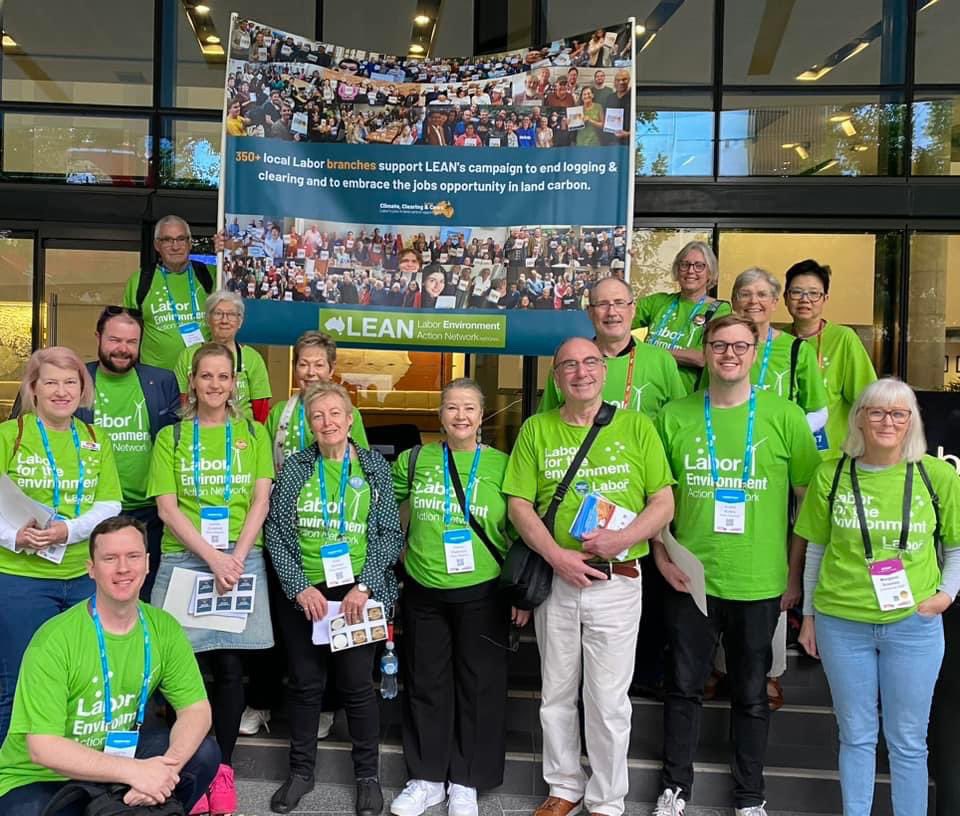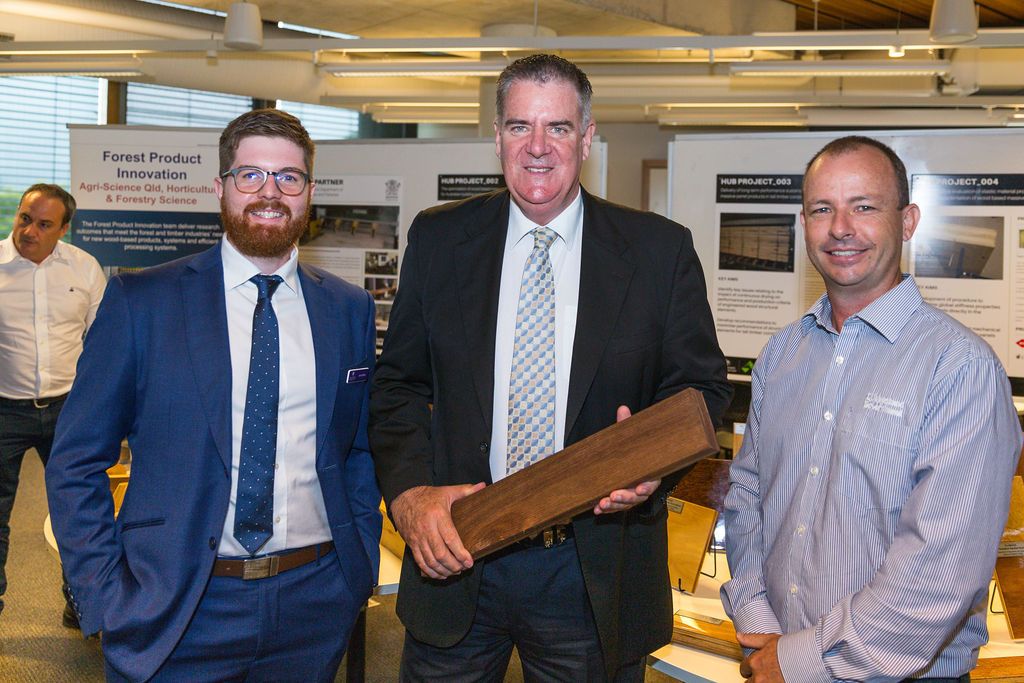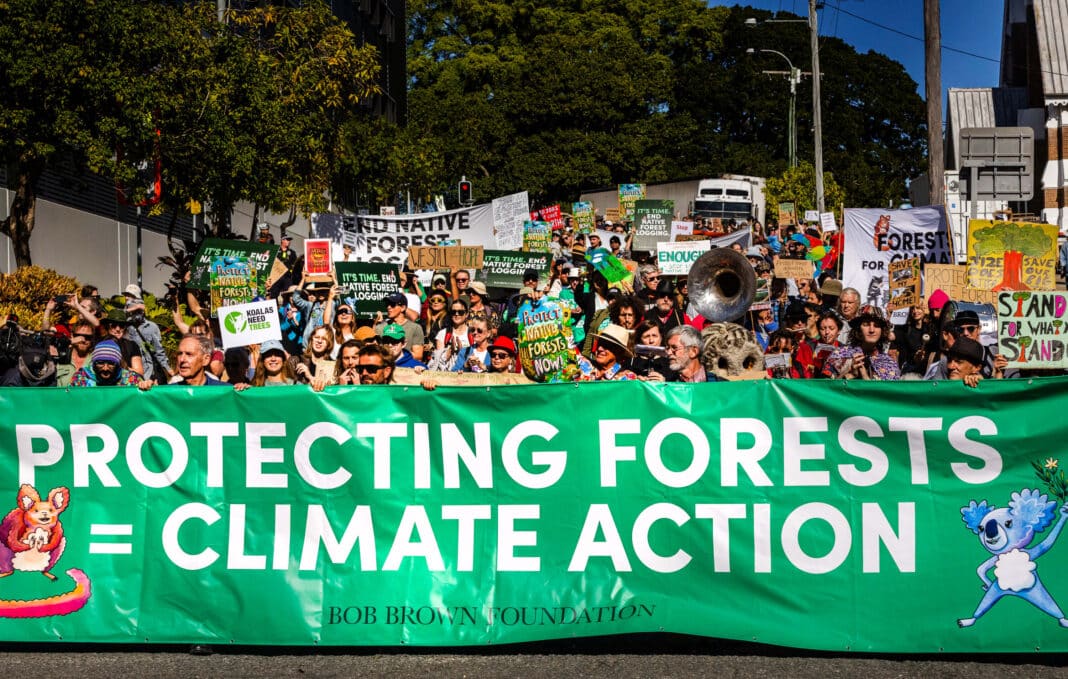Hundreds of protesters have gathered in Brisbane’s Musgrave Park to protest against selective forest harvesting in Australia’s State Forests.
The demonstrations followed nationwide protests, which included Australian PM Anthony Albanese’s electoral office in inner-city Sydney last week.
The Prime Minister is one of several Labor politicians holding inner-city seats in Sydney, Brisbane and Melbourne.
Native forestry and land clearing have become hot-button politics for the government, with the Australian Labor Party’s left-wing pushing for the party to address vote leakage to the Greens.
Following the NSW election, the ALP now holds the federal government and the Queensland, Victoria, WA, South Australia, ACT and NT governments.
Support for the industry fluctuates widely from Victoria and WA to Tasmania – which has criticised the incumbent Liberal State Government for not supporting the industry.
In recent years many safe Labor seats – and a growing number of Liberal seats – have seen a surge in Greens’ and Teal votes.
These seats include the seats of Grayndler, held by the Prime Minister, Sydney, held by the Environment Minister and Warringah, held by former Prime Minister Tony Abbott.
Over the weekend, the forest wars were the subject of the latest Landline documentary aired by ABC.
Last week, Wood Central reported that the ALP National Conference moved and rejected a motion to transition from native forestry to 100% plantation timber.

According to a study commissioned by the Australia Institute, 75% of ALP voters allegedly support exiting native forestry in NSW and Tasmania.
With ALP governments in WA and Victoria exiting native forestry, court action led by the Greens and environmental groups in NSW and Tasmania is pushing to halt harvesting in both states.
“The decent thing here is that Tasmania should be following Victoria and Western Australia and ending native logging and destruction and extinction of our species,” according to Bob Brown, former leader of the Greens.
However, concerns over substituting Australian timber production for overseas imports have been raised to counter closures.
As revealed exclusively by Wood Central, Tyron Venn, an agricultural and natural resource economist at the University of Queensland, studied forestry systems in Australia and overseas for over 20 years.
Dr Venn said native timber production in Australia had almost halved since 1995 by around 2.2 million cubic metres.

But that shortfall has mainly been replaced by timber imports from Asia and the Pacific, principally China.
Dr Venn’s research, “Reconciling timber harvesting, biodiversity conservation and carbon sequestration in Queensland, Australia“, has focused on native forestry in Queensland ecosystems.
- A copy of the report is available for download here.
“The ecological and economic realities of the world suggest Queensland can maximise its contribution to reducing the climate crisis by continuing to manage its native forests for a mixture of timber production and conservation,” Dr Venn told the Wood Central publisher in an interview.
Speaking to Landline, Dr Venn said everyone involved in the future of Australia’s forests needed to think about the bigger picture.
“We need to be considering the biodiversity and carbon impacts of our native forest management decisions at a global scale, not just a local or regional scale,” he said.
Last week Wood Central revealed that the Queensland Government is “focused and highly engaged with the timber industry,” with the supply of “softwood and hardwood” pivotal to meeting its population surge.
The Minister for Agricultural Industry Development, Fisheries and Regional Communities, Mark Furner, told an Estimates committee that Queensland “will not be going down a path like other states.”

The Gympie Times reports that Minister Furner sought to reassure worried forestry business operators and their employees about government plans for their future.
“We intend to see the native forest industry continue long into the future,” he told the Estimates Committee.
“Here in Queensland,” Minister Furner said, “we pride ourselves on our sustainable harvest practices.”
“There is no clear felling in native forests on either state or private land for timber production purposes,” he told parliament’s budget estimates committee this month.
“Native forest harvesting operations in Queensland are undertaken on a sustainable, selected basis with individual trees only harvested that satisfy the commercial requirements.
“This limits disturbance to the surrounding forests promotes revegetation, and ensures that broadscale clearing does not occur,” he said.
In Queensland, timber harvesting operations must meet the code of practice for native forest timber production on Queensland’s state forest estate.
They are also subject to Queensland’s environment and heritage laws, such as the Nature Conservation Act 1992, the Aboriginal Cultural Heritage Act 2003, and the federal government’s EPBC Act.
The situation in Queensland is unique, with forest operations not operating under regional forestry agreements – as distinct from Victoria, NSW, WA and Tasmania.
“Queensland’s native hardwood forests are well adapted to selective harvesting,” Minister Furner said, “because they have a store of advanced regeneration ready to respond when harvesting removes competitive trees and provides access to sunlight and soil nutrients.”
“More than half the forest is retained on state land because the remaining trees provide habitat, are not commercial or are required to meet tree retention requirements in the code.”
“Most state forests have been subject to multiple selective harvest events over the decades, with products such as sawlogs, power polls, bridge girders, railway sleepers and fence posts being harvested cyclically,” Minister Furner said.
“These multi-use state forests also continue to supply a range of other services such as the protection of biodiversity and water catchments and recreational opportunities as well as contributing positively to the carbon cycle.”







